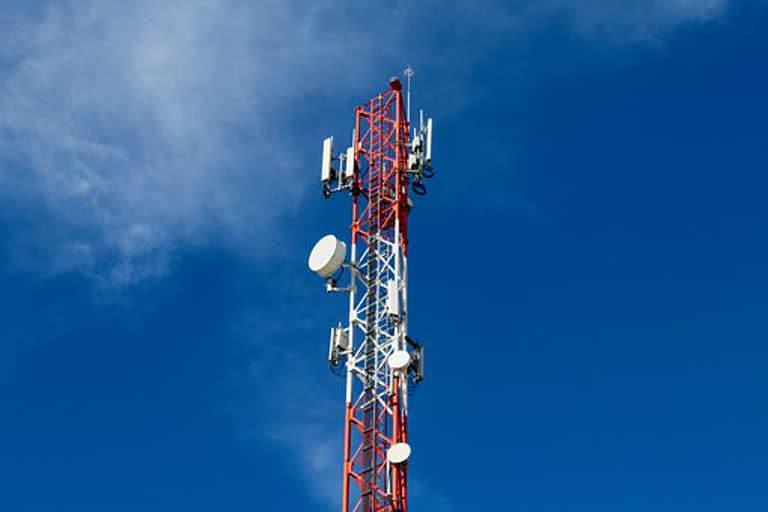New Delhi: With Supreme Court ordering telecom dues to be collected based on Department of Telecommunication's demand, India may be headed towards a duopoly structure as the ruling has made matters worse for Vodafone Idea Ltd while Bharti Airtel and Reliance Jio are well placed due to strong balance sheets, analysts said on Thursday.
The apex court on Wednesday rejected the adjusted gross revenue (AGR) dues determined by telcos through a self-assessment exercise and ordered them to pay the principal together with interest and penalties.
It stated that non-payment of dues so far would be tantamount to contempt of court.
"Of interest, the self-assessment done by Airtel and Vodafone Idea Ltd (VIL) pegs their AGR liabilities at less than half of the levels determined by the Department of Telecommunications (DoT)," Morgan Stanley said in a note.
The Supreme Court will reconvene in two weeks to pronounce its judgment on the relief measures sought by the DoT including a payment period of 20 years.
Stating that the AGR issue "could create a duopoly structure," Morgan Stanley said: "The Supreme Court has not relented on the AGR dues, which makes matters worse for VIL. Airtel and RJio are well-placed thanks to strong balance sheets and could gain market share."
Credit Suisse said Bharti Airtel has paid 48 per cent of the DoT determined amount while VIL has paid only 13 per cent of the dues.
"We believe that SC's rejection of self-assessment of AGR dues is particularly very negative for VIL given that 87 per cent of dues (as per DOT computation) are yet to be paid by VIL which is equivalent to four-times of its market cap.
"We believe that while the government can come up with other relief measures besides deferred payment option for AGR dues such as license fee cut, mobile floor pricing, etc., VIL's sustenance would remain under cloud without significant equity infusion and operational improvement," it said adding the sector was heading towards a duopoly unless credible relief package came fro the government.
Even at per-user revenue of Rs 200 on a subscriber base of 280 million and a 300 basis point cut in license fee, VIL will struggle to sustain beyond FY22 when the moratorium on spectrum dues ends in the absence of meaningful equity infusion by its shareholders (on which there is limited clarity), it said.
Read more: RBI extends Rs 60,000 crore credit line to Yes Bank
"We, thus, believe that the sector is likely to be heading towards a two (private) player market."
DoT pegs Bharti Airtel's dues at Rs 43,980 crore, that of Vodafone Idea Ltd at Rs 58,254 crore and that of Tata Group at Rs 16,798 crore.
Against this, Bharti self-assessed its dues at Rs 13,004 crore and paid a total of Rs 18,000 crore, including Rs 5,000 crore towards reconciling any difference.
VIL assessed its dues at Rs 21,533 crore and paid Rs 6,854 crore. Tata Group of companies self-assessed their dues at Rs 2,197 crore. The remaining of the Rs 1.69 lakh crore dues listed by DoT pertain to firms that are in bankruptcy or have already closed down.
Goldman Sachs said if telcos were asked to pay the entire amount upfront, it could see a sharp market share decline for VIL given its already stretched balance sheet.
"In our view, such market share re-allocation would likely bene?t Bharti and Jio."
Morgan Stanley said Jio does not run any risk on the AGR front.
"The Supreme Court will hear the DoT relief measures in two weeks. If it doesn't accept these measures, significant challenges for VIL would arise."
Credit Suisse said Bharti Airtel would emerge as a key beneficiary of further market consolidation with market share gains and eventual pricing improvement. It could gain 40 per cent of VIL's subscribers in the eventuality of its closure.
"In such a scenario, we expect Bharti Airtel to have 40% subscriber market share, 55% with Jio, and remaining 5% with BSNL/MTNL," it said adding Bharti Airtel would however also need higher investments in the form of the spectrum, capex for rolling out a larger network, and higher opex from handling larger network (including higher tower rentals as benefits of sharing passive infra go away).
Axis Capital said even if the apex court allows DoT's proposal for staggered payment (over 20 years), it will restrict VIL to a fringe player given the reduced capex spends.
"Bharti Airtel/RJio will continue to gain market share at the cost of VIL due to the latter's worsened financial health."
(PTI Report)



